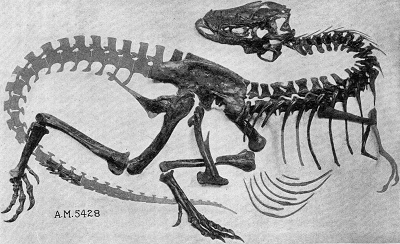Archive for April 2016
Chiasm and creation in John
Hajime Murai has proposed a deep chiasm running the entire length of the book of John. I’ve been following along off and on in our church’s readings in John, and some of the parallels are striking; for example, John 4 paired with John 19, or Nicodemus questioning and later burying Jesus.
Murai includes the so-called pericope adulterae, John 7:53-8:11, in his outline. This is a disputed passage that almost certainly was not part of John’s original manuscript. However, I think that the chiastic parallels are actually stronger if this passage is omitted. Murai suggests that 7:53-8:11 parallels 10:1-21, and links the Pharisees’ lack of understanding. I suggest the following arrangement, starting with Murai’s pairing of living water with the raising of Lazarus:
7:37-39 Living water
7:40-44 Division and seeking to arrest
7:45-52 The shepherds of Israel
8:12-30 Light of the world
8:31-59 I AM
9:1-41 A man born blind healed; the blindness of the Pharisees
10:1-18 The great shepherd
10:19-39 Division and seeking to arrest
10:40-11:54 Crossing the Jordan and the healing of Lazarus
This serves as a small and secondary confirmation the disputed passage is not original to John.
The fact that the center of John involves a discussion of light and seeing and what is “above” is also striking, especially following a discussion of water. This suggests to me that Murai’s overall chiasm could be bracketed into seven sections that track the days of creation (central day four being the heavenly lights, following day three’s separation of land and waters).
History
Romans 11:17-24 reads:
But if some of the branches were broken off, and you, although a wild olive shoot, were grafted in among the others and now share in the nourishing root of the olive tree, do not be arrogant toward the branches. If you are, remember it is not you who support the root, but the root that supports you. Then you will say, “Branches were broken off so that I might be grafted in.” That is true. They were broken off because of their unbelief, but you stand fast through faith. So do not become proud, but fear. For if God did not spare the natural branches, neither will he spare you. Note then the kindness and the severity of God: severity toward those who have fallen, but God’s kindness to you, provided you continue in his kindness. Otherwise you too will be cut off. And even they, if they do not continue in their unbelief, will be grafted in, for God has the power to graft them in again. For if you were cut from what is by nature a wild olive tree, and grafted, contrary to nature, into a cultivated olive tree, how much more will these, the natural branches, be grafted back into their own olive tree. (ESV)
This has a significant implication for the history recorded into the Old Testament. It is possible both to be adopted into that history, and also to be disowned from that history. Thus, whatever its cultural make-up, Jesus’s church can claim the Old Testament as its own history: we were rescued from Egypt, we hung our harps on the willows, and we were preserved by Yahweh in exile.
It is also, of course, a sobering warning. It is possible for people and churches and cultures to live for centuries, even millennia, preoccupied with a history that is glorious but which has ceased to be your own.
Dragons and Leprosy
 We watched the 1959 movie Ben Hur recently as a family and enjoyed it.
We watched the 1959 movie Ben Hur recently as a family and enjoyed it.
Contra the movie, I am not convinced that modern-day Hansen’s disease is necessarily linked with Biblical leprosy. They are very commonly confused, so I was not at all surprised. However, it did surprise and at first disappoint me to see leprosy healed just as soon as Jesus died; that seemed like a cheesy storytelling shortcut.
But upon reflection, it is true that Jesus brings us many great gifts apart from our deserving or even asking for them. A similar unasked-for miracle is recorded on that very day (Matt 27:52-54). And it is particularly striking that the kinds of leprosy described in Leviticus are nowhere quite exactly to be found today: just as today we no longer see the great dragons whose bones can still be found (e.g., Isa. 27, 51), there is today no more leprosy of that kind. The last great leprous house was dismantled in AD 70 (Lev. 14:45, Matt. 24:2), so that we can say the death of Jesus truly did inaugurate the end of leprosy!
The great storyteller has seen fit to tie these transitions to the new covenant in Jesus. The great dragons are defeated, and there is now one washing that grants permanent access to the very throne of God, so that you could even say that it is now life rather than death that is contagious. This the movie portrayed well.